Interview With Joey Pepper
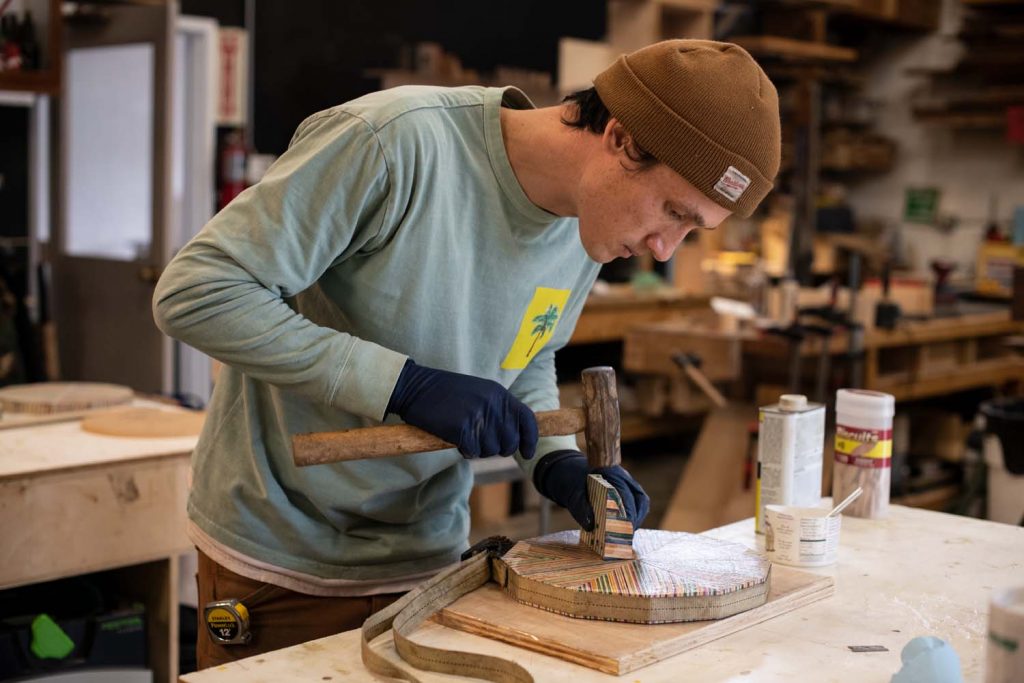
Joey Pepper has always been known for his talents on his board, but recently he’s been honing his skills in woodworking and making used boards into custom furniture and more. We caught up with Joey to see how he got started and why everything should be treated to last.
What’s up Joey, it’s been really cool to see all the projects you’re working on. How long have you been doing custom woodwork? I saw on your site that you do everything from canoes to lighting and re-purposing used skateboards into furniture, how did you get started in it all?
I started learning my way around a proper woodshop with good tools and machines around 2007. Apprenticing for a friend and learning on the job taught me a lot. A lot of the stuff I’ve built for myself over the years has been with limited funds, which is why I like building with recycled materials or just using what I have at the moment. Necessity is the mother of invention…or something like that.
Hah, sounds right to me. When did using old skateboards come into the picture for your projects?
I started turning some small objects on the lathe in my Brooklyn shop using my old boards then just kept experimenting from there when I would collect enough boards. I think the first thing I made was a life-size sculpture of a lobster buoy. I didn’t start doing it because I wanted to recycle, but now I think more about it and like to treat everything like it should last. When you purchase something, you are responsible for that thing even after you’re done using it. So don’t buy disposable garbage and try to consider where it’ll end up after it’s served its original purpose. You can make something that was meant to have a short lifespan and turn it into an heirloom. A used skateboard might be worth $5, but a stack of 10 glued up is worth $1000 to me.
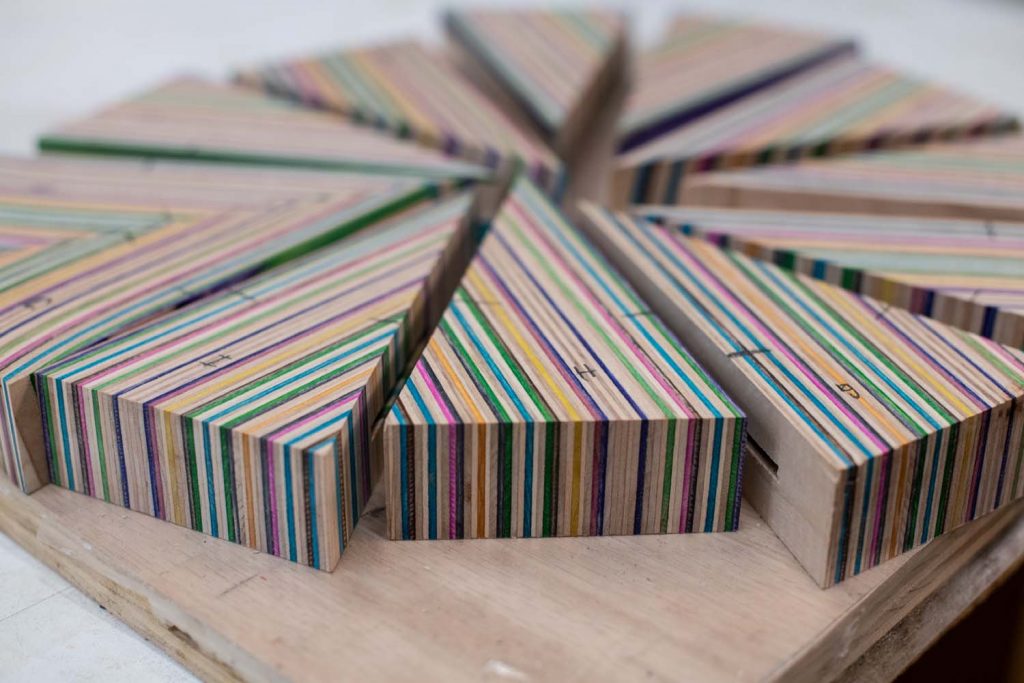
That’s a really great way to think of products. Hopefully, more people will start thinking from that mindset. Do you mostly use your old decks, or do you have collections set up with some of the skate shops in Portland?
I just use mine or ones from friends. I don’t do big production, so I just collect small stacks.
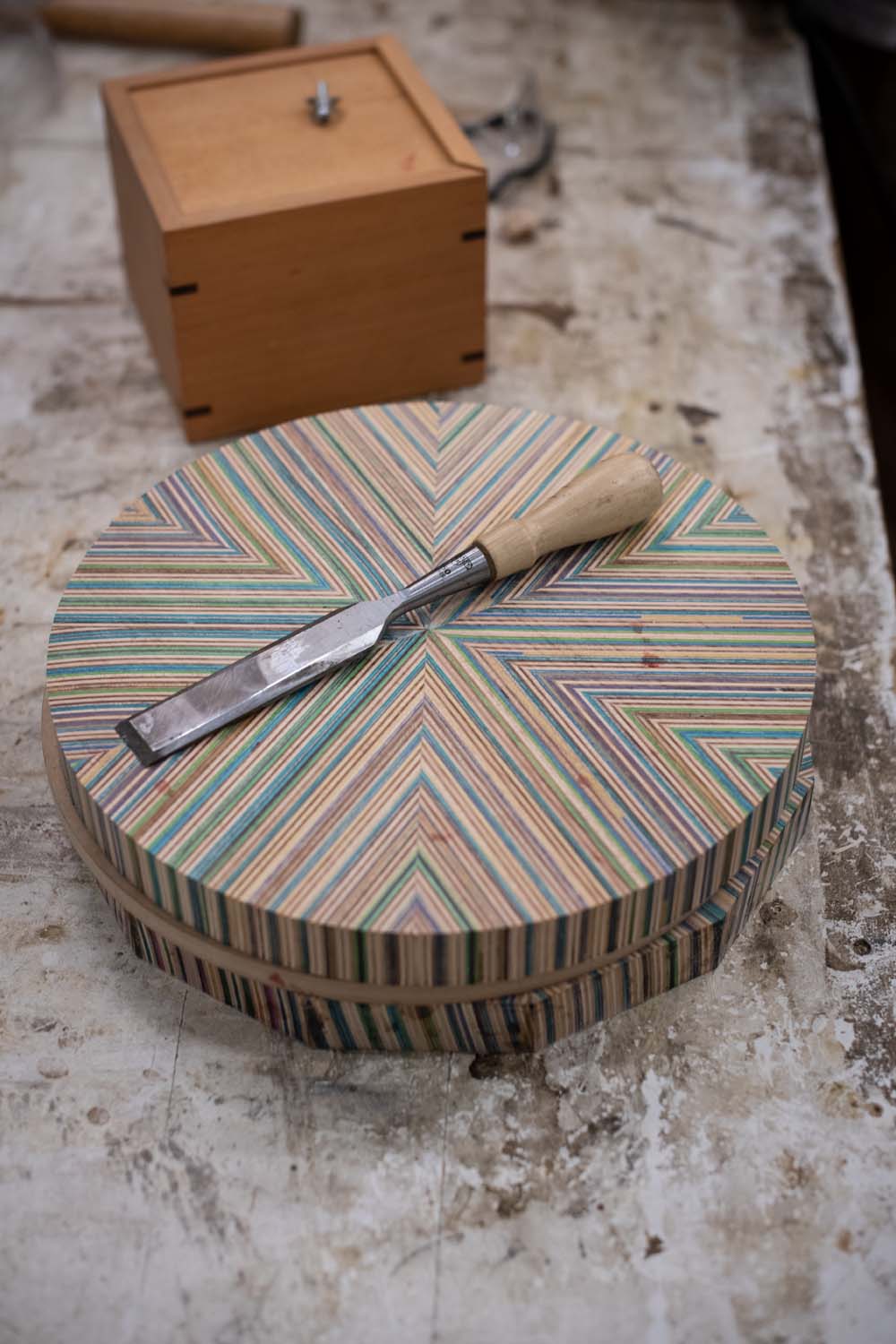
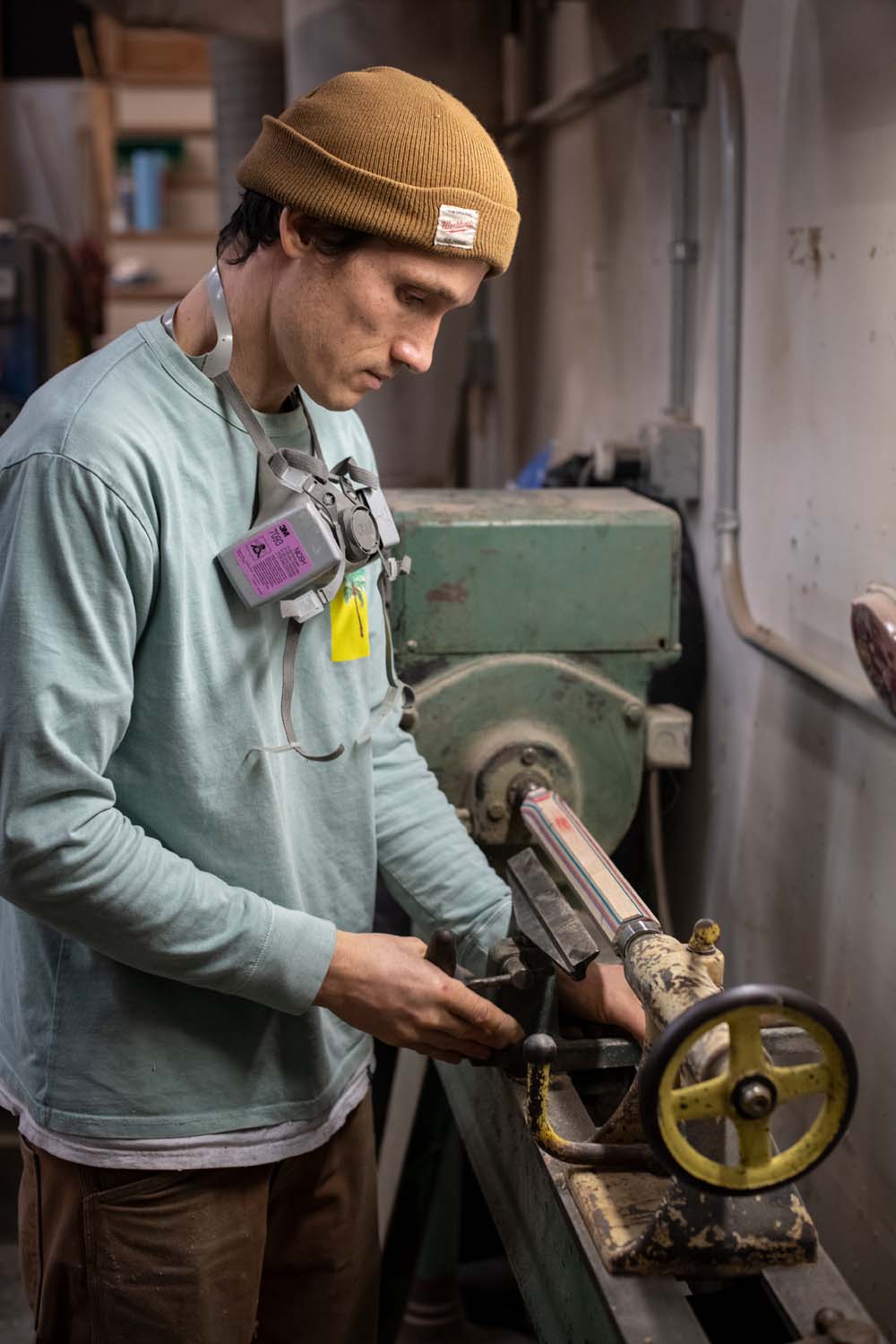
Was there anyone that inspired you to move into using recycled boards as materials for your work?
There’s lots of people doing great things. I’m definitely no pioneer. Haroshi, George from Iris, Andrew Szeto, Lindsay from MapleXO all make rad stuff.
Do you ever find it hard to balance skating and your woodworking business?
Yes, and for that reason, both become more of a hobby than a business. I kind of go all-in on one or the other, so one will always be getting neglected.
I can understand how that goes, do you see any similarities in both the activities?
On a personal level, Yes, in that when I’m feeling’ good and can focus, everything just clicks and the days are amazing. Some days just suck, and it’s hard to find inspiration and focus. In both, I’m my own biggest critic and think way too much about how I’ll be judged by others. On days when I can get over that, the product is much better.
It’s always interesting how that goes, the less you think about the judgment the better it goes. To give everyone an idea for something like the stool or clock you made, how many boards go into something like that?
Really depends on the pattern I end up using but probably 15 boards for a stool and a clock.
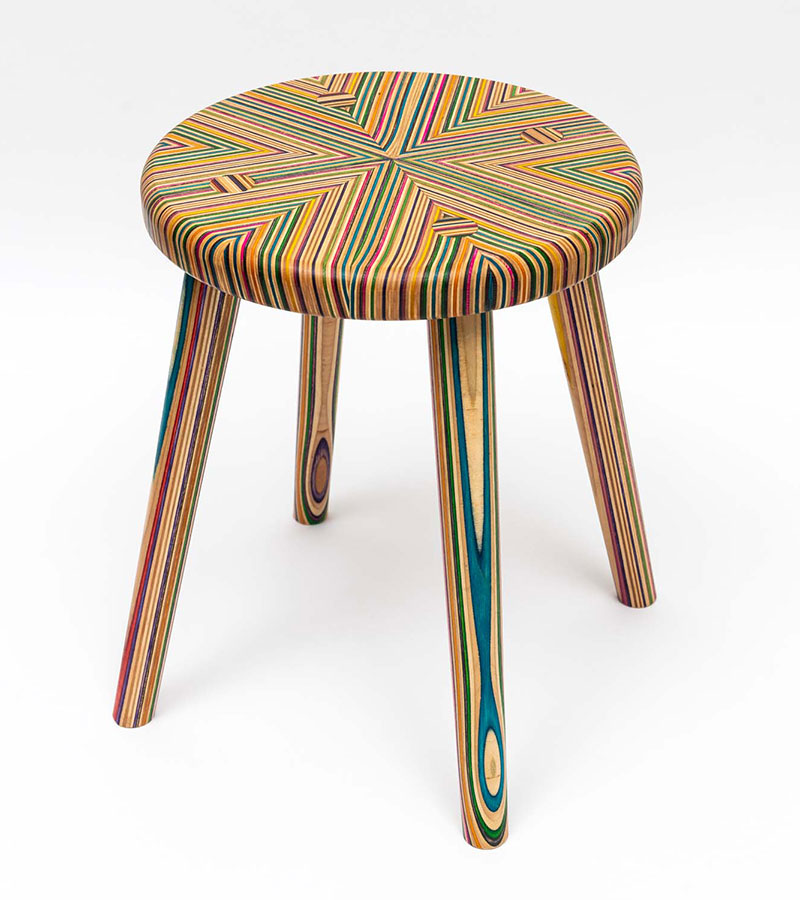
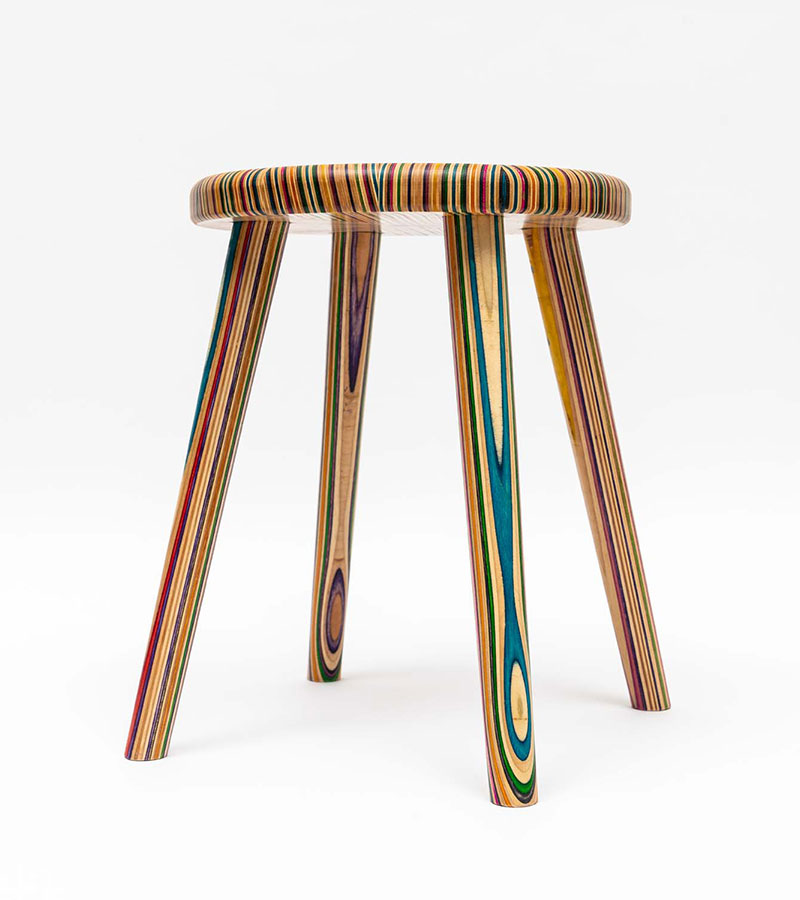
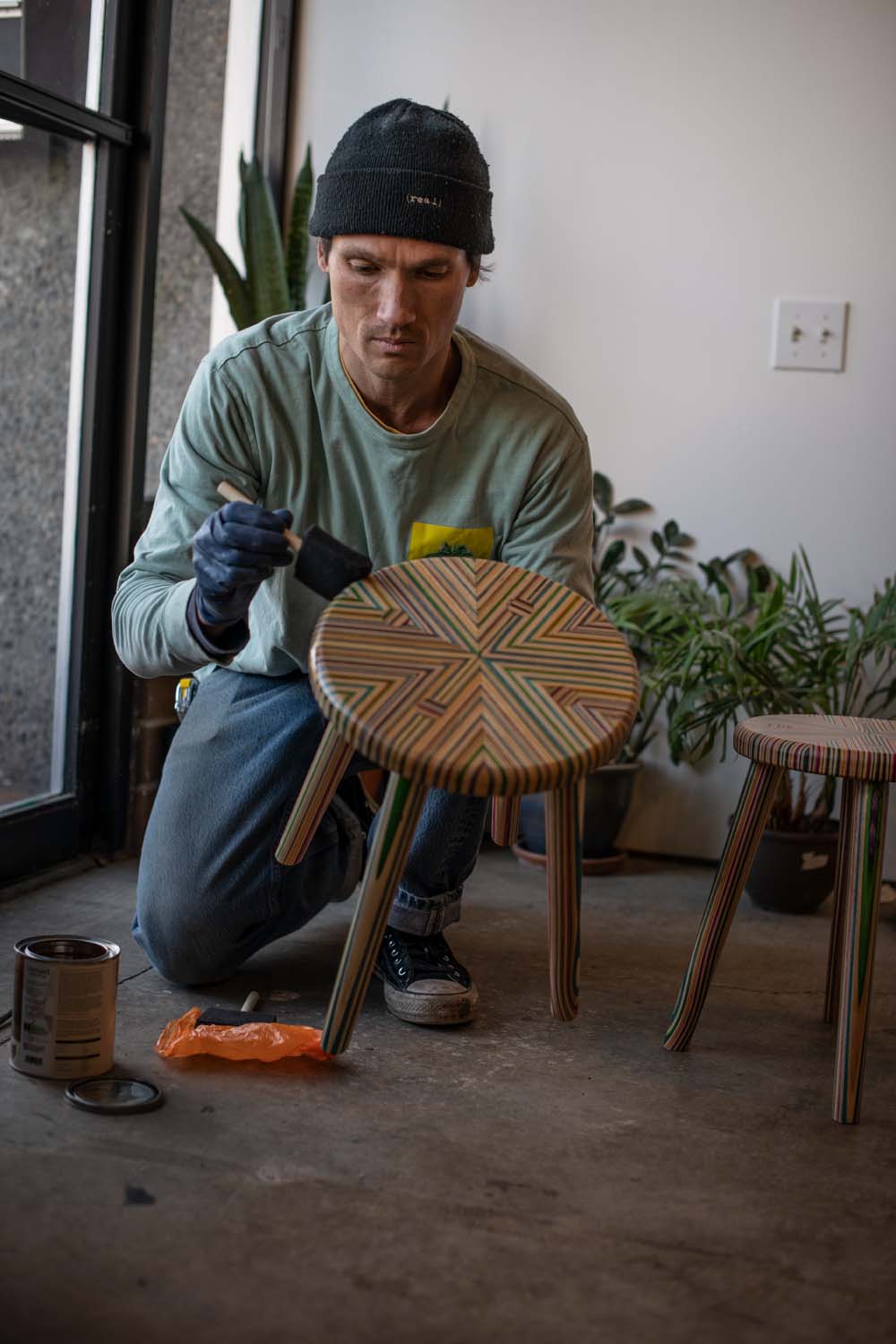
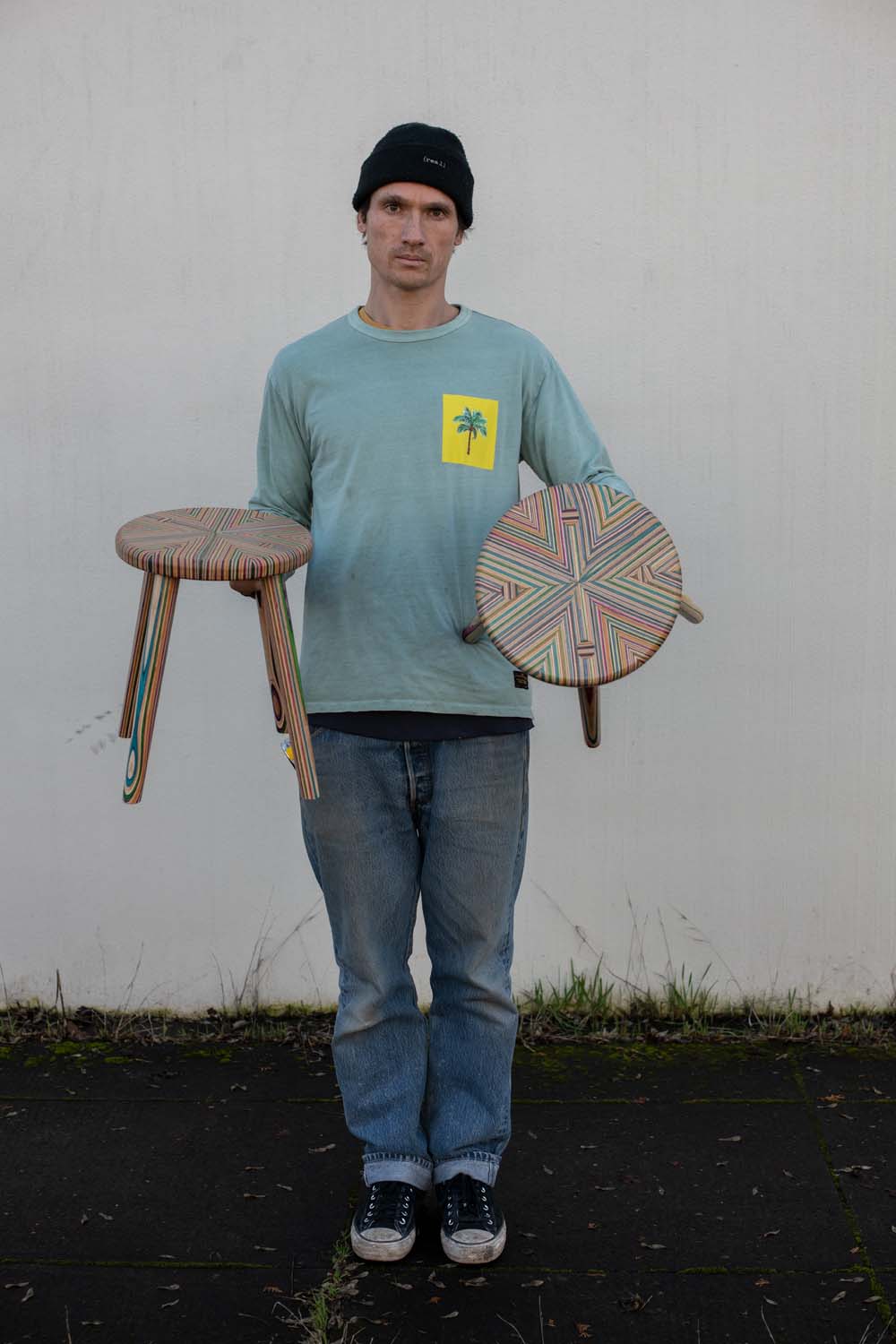
Thanks so much for taking the time to talk with us and sharing your work. One last question for you, what advice would you give to someone who wants to make things out of used skateboards? Are there any tips or tools they should start with?
Get an apprentice to do the dirty work. Peeling griptape sucks. Don’t use any paint strippers or other toxic chemicals to get the graphics off cause your glue joints will fail eventually. Used skateboards are very hard on your tools, so be prepared to sharpen blades and turning tools often if you plan on doing a lot of it. Dull tools are sketchy. Wear a respirator always when cutting or sanding. Skateboards are full of gnarly resins and stains. Fuck Cancer.
For more of Joey’s work visit joeypepper.com/
All photos by Joe Brook.

